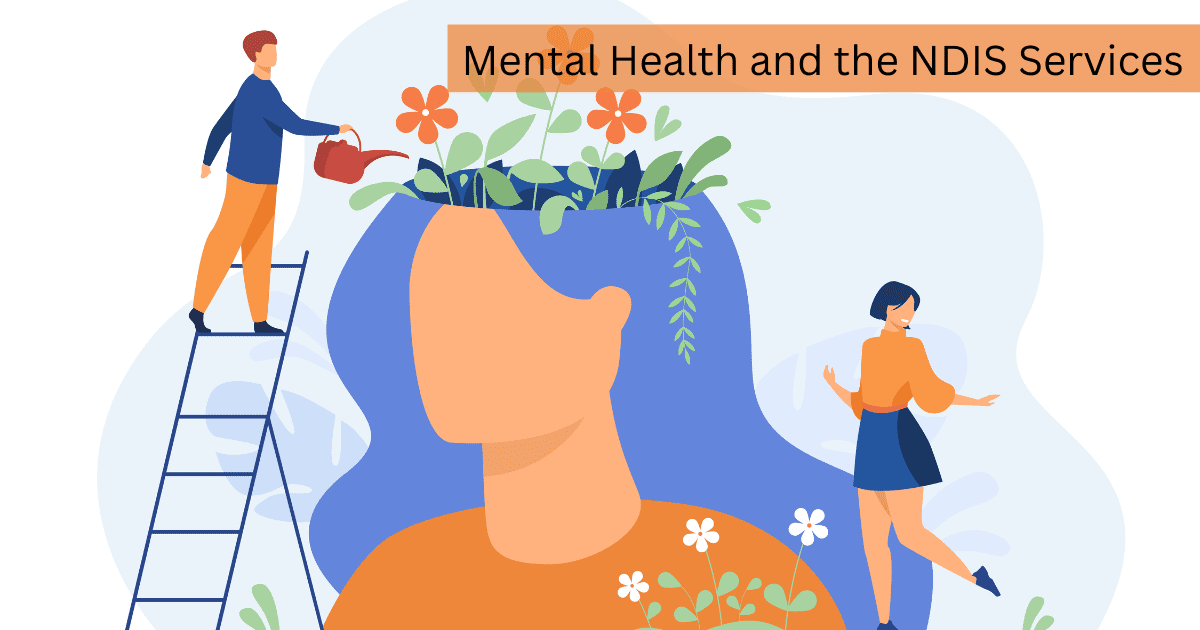The NDIS offers a variety of support for people with mental illness, to increase their abilities and independence. Mental health is a very complex subject and requires specialised support even within the NDIS. Coordinating patient care and support are critical to the recovery of participants. This is why the NDIS collaborates with the individual’s family and support networks, providing psychosocial recovery coaches to help them in this journey. The focus is on capacity building and developing a strong sense of ownership in their lives.
NDIS mental health support includes:
- Psychosocial Recovery Coaches: These professionals can provide one-on-one support and help with activities of daily living, social skills, and community participation under the NDIS.
- Psychologists: They provide psychological strategies and interventions to reduce the impact of the psychosocial as well as other disabilities of NDIs participants.
- Allied health professionals: Allied health professionals such as occupational therapists, speech pathologists, and physiotherapists can also help participants with daily activities, social comfort development, and community participation.
What Is the Role of a Psychosocial Recovery Coach?
A psychosocial recovery coach is a professional who has been trained to provide mental health support in accordance with the psychosocial recovery principles. These are:
- Everyone has potential that can be realised
- Individuals have the right to self-determination
- Focus on the person’s strengths rather than their symptoms
- Each person’s requirements are unique
The NDIS provides funds for a psychosocial recovery coach as part of its support system. These coaches are primarily funded through the NDIS services and provide a platform for patients to manage their disabilities. Recovery coaches are like Support Coordinators, but they specialise in a recovery-based approach for people whose primary disability is caused by mental illness. It is a modern approach to working with people who have a psychosocial disability. They will collaborate with you, your family, carers, and other services to design, plan, and implement a recovery plan. This also includes coordinating with your government and mental health-specific support in clinics or the community.
The goal of a psychosocial recovery coach is to assist NDIS participants who are struggling with their mental and emotional well-being. This type of coaching is unique in that it assists patients in achieving greater stability and ease in their lives. The roles and responsibilities of these coaches include the following:
- Creating a relationship that promotes recovery
- Coaching to increase recovery skills and personal capacity, including motivation, strengths, resilience, and decision-making, for NDIS participants
- Assistance with recovery planning for participants
- Collaboration with the larger support system
How Can a Psychosocial Recovery Coach Help with Mental Health?
For many people, recovery is an important part of their mental health journey. The NDIA has now added ‘Recovery Coaches’ to the support a person with mental illness can get in their NDIS plan as of 1 July 2020 to help NDIS participants with recovery. They assist people with psychosocial disabilities in leading productive lives. This allows patients to gain more control of their life and manage their daily challenges in a better way.
Recovery coaches will assist people with psychosocial disabilities in living a full and contributing life. Participants will be helped to regain control of their lives and the complex challenges of daily life. Capacity building, including strengths and resilience, will be done through strong, respectful relationships and skilled coaching. Recovery coaches will design, plan, implement, and adjust a recovery plan in collaboration with participants, their families, carers, and support networks. They will work with the broader service system to help with NDIS and other support coordination.
A clear plan of action based on the participants’ current strengths is designed to achieve the desired outcomes. The NDIS services and mental health recovery programmes also provide access to systems and other resources such as benefits and healthcare. It will also assist individuals to return to work, finding stable housing, and transitioning through the different life stages. The client may direct their own recovery, while the coach provides expertise and encouragement to support the necessary changes and achieve the individual’s goals.
Get Professional NDIS Mental Health Support in Melbourne
If you or a loved one requires NDIS services to support their mental health, there are many reputed NDIS service providers to choose from. Ability Track is one of the leading names when it comes to NDIS support and services in Melbourne. They have some of the best facilities and support workers to ensure a comfortable experience for all participants. All of their support staff and caregivers are trained to handle all situations, including medical emergencies, so your loved ones will be in safe hands. Furthermore, they provide a safe space where NDIS participants can work on their recovery and learn new skills that promote self-sufficiency.
To know more about their services or enquire about their facilities, you can call them on 03 9120 8880 or 1300 115 110. Alternatively, you may send them an email at info@abilitytrack.com.au.

As the editor of the blog, She curate insightful content that sparks curiosity and fosters learning. With a passion for storytelling and a keen eye for detail, she strive to bring diverse perspectives and engaging narratives to readers, ensuring every piece informs, inspires, and enriches.










